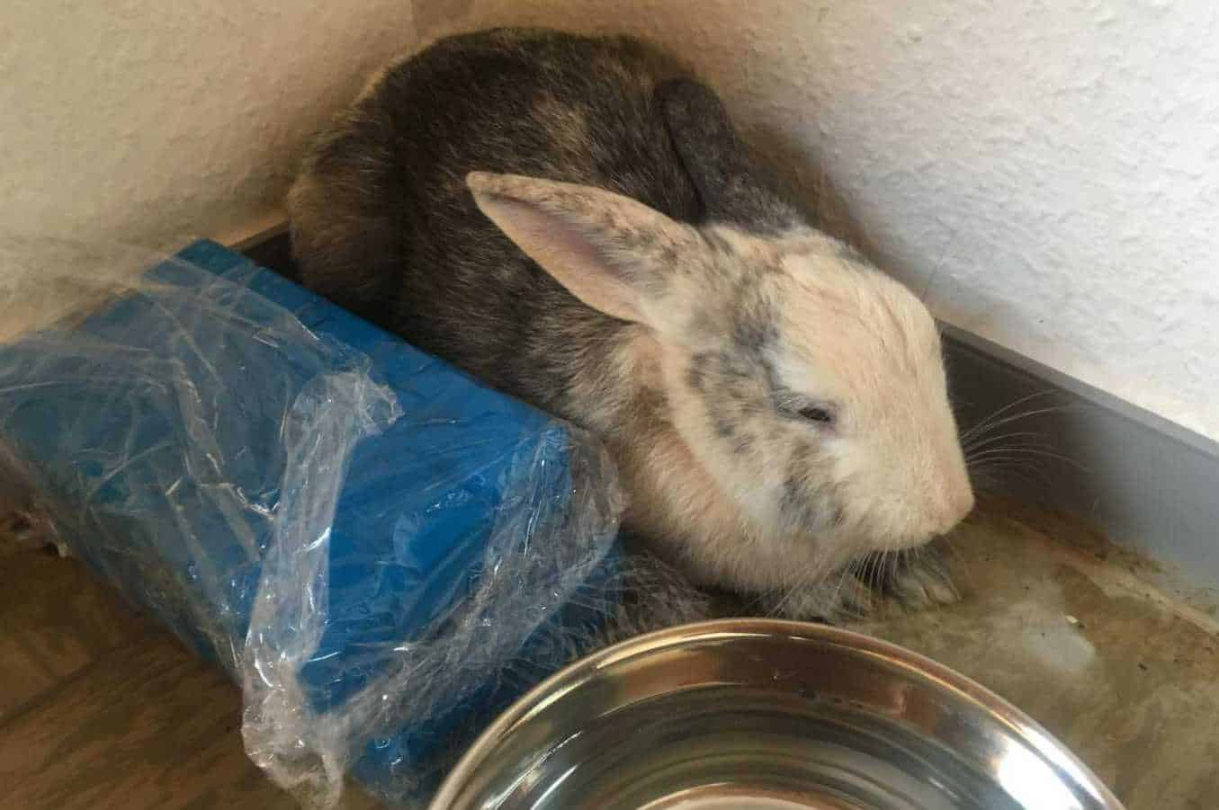How Long Can a Rabbit Survive Without Water?
Rabbits are small herbivorous mammals that require water for their survival, just like any other living creature. Adequate hydration is essential for their overall health and well-being. Water plays a crucial role in maintaining their body temperature, digestion, and elimination of waste products. But have you ever wondered how long a rabbit can survive without water?

The Importance of Water for Rabbits
Water is vital for rabbits in several ways. Here are some of the key reasons why they need to stay hydrated:
- Body Temperature Regulation: Rabbits cannot sweat, so they rely on evaporative cooling to maintain their body temperature. They do this by panting and through the moisture on their nose and ears. Without adequate water intake, a rabbit may struggle to regulate its body temperature, leading to overheating and potential health problems.
- Digestion: Rabbits have a unique digestive system that requires a high-fiber diet. Water is crucial for the breakdown and fermentation of fiber in their gut. It helps keep the contents of their digestive tract moving smoothly, preventing blockages and other digestive issues.
- Urinary System Health: Water is essential for proper kidney function and urine production. It helps dilute the urine, preventing the formation of bladder sludge or urinary stones, which can be painful and potentially fatal for rabbits.
- Overall Hydration: Just like humans, rabbits need to stay hydrated to maintain their overall health. Water supports all bodily functions, including circulation, nutrient transport, and waste removal.
How Long Can a Rabbit Go Without Water?
The duration a rabbit can survive without water depends on various factors, including its age, health condition, diet, and environmental conditions. In general, rabbits should always have access to fresh, clean water. However, in emergencies or situations where water is temporarily unavailable, here are some estimates:
- 24 hours: Most healthy adult rabbits can survive for about 24 hours without water. It is important to note that this is a rough estimate, and individual rabbits may have different tolerances.
- Dehydration Symptoms: After around 12 hours without water, rabbits may start showing signs of dehydration. These symptoms can include lethargy, loss of appetite, sunken eyes, dry mouth, and decreased skin elasticity.
- Young or Sick Rabbits: Young rabbits (kittens) and those with pre-existing health issues have a lower tolerance for dehydration. They may show signs of distress or become severely ill within a shorter time frame without access to water.
Important: While rabbits can survive for some time without water, it is crucial to ensure that they have constant access to clean and fresh water for their well-being. Dehydration can lead to severe health complications and even death.
Frequently Asked Questions (FAQs)
Can rabbits get water from their food?
Yes, rabbits can obtain some moisture from their food, especially if they consume fresh vegetables and leafy greens. However, this alone is not sufficient to meet their water requirements. They still need a separate source of water.
How much water should a rabbit drink per day?
On average, a healthy adult rabbit should consume around 50-150 milliliters of water per kilogram of body weight per day. This can vary depending on factors like diet, activity level, and environmental conditions.
What can I do if my rabbit refuses to drink water?
If your rabbit shows signs of decreased water intake, it is essential to identify the underlying cause. It could be due to dental issues, illness, stress, or a dislike of the water source. Consulting a veterinarian is recommended to rule out any health concerns and determine the best course of action.
How can I encourage my rabbit to drink more water?
There are a few strategies to encourage rabbits to drink more water, such as:
- Providing fresh water in clean bowls or water bottles.
- Use ceramic bowls instead of plastic, as rabbits may chew on plastic containers.
- Offering water in multiple locations to give them easy access.
- Adding a small amount of unsweetened fruit juice to the water as an occasional treat.
- Monitoring the water temperature, as some rabbits prefer cool water.
Remember, the best way to ensure your rabbit drinks enough water is to provide a consistent supply of fresh water and monitor their intake regularly.
In conclusion, water is a vital component of a rabbit’s overall health and well-being. While they can survive for a short period without water, it is crucial to ensure they have constant access to clean and fresh water. Dehydration can have severe consequences for rabbits, especially for young or sick individuals. Monitoring their water intake and observing any signs of dehydration are essential to keep your furry friend happy and healthy.
Related Articles…
Copyright Notice:
Images displayed on this website are not our property, but are procured from the internet. If you hold copyrights to any image and wish for its removal, please get in touch with us.